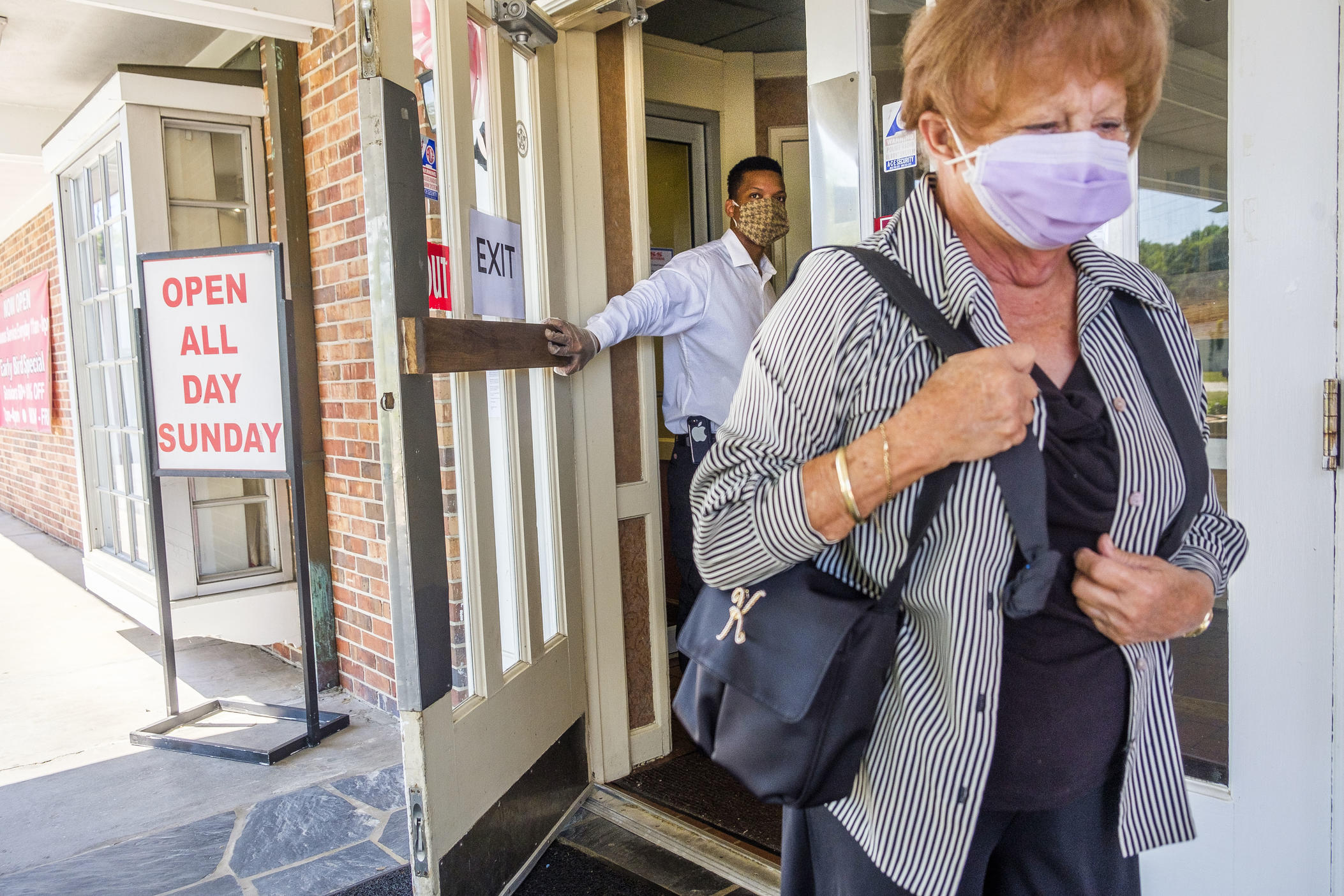Section Branding
Header Content
Macon Passes Mask Mandate Against Backdrop Of Coronavirus Spike
Primary Content
Add Macon-Bibb County to the list of Georgia cities that have now put in place rules mandating mask use in public places.
The rule passed on a 7-2 vote in the Macon-Bibb County Commission Tuesday night. Commission members Joe Allen and Scotty Sheppard were the no votes. One of the yes votes was an abstention by commission member Valerie Wynn which, according to board rules, technically counted as a yes.
Scott Mitchell owns Travis Jean Emporium, an art and gift shop in downtown Macon, and was an early advocate for a county-wide mask rule.
“It gives businesses a little backing when we are out here trying to do it seemingly on our own,” Mitchell said. “My hope is that it will show people that this is serious and make people think twice before leaving their home without a mask.”
The backdrop for the vote was a one-month stretch of exponential growth in coronavirus cases in Macon-Bibb County.
According to the most recent COVID-19 operations report from the 13-county North Central Health District, which includes Macon-Bibb County, coronavirus cases more than doubled in the last three weeks.
Meanwhile, 21 out of 100 people tested for the coronavirus by the public labs in the county over the last three weeks have been found to carry the virus. That’s four times the rate set as a guideline for adequate testing by the World Health Organization, a troubling sign that there are still many coronavirus cases still unaccounted for.
“I would say that it would indicate that we are capturing just the tip of the iceberg right now,” said microbiologist and COVID-19 data analyst Amber Schmidtke. “It means that our case count is probably artificially low compared to what is truly out there.”
And it suggests that far more testing is needed to record and physically isolate all the coronavirus infections in the county.
The percent positive rate for commercial labs like pharmacies or those which run pop-up test sites is not recorded in NCHD data.
The gap between known and unknown coronavirus cases is similarly broad in Houston County where 17 out of 100 people tested positive for the virus in the last three weeks. The recorded case counts there have slightly less than doubled.
The Centers for Disease Control and Prevention this week released a study that provides some broad insight into what kind of multiplier communities can apply to their testing data to get a more accurate picture of virus spread. Looking at antibody tests in a handful of states, the CDC now says actual infections could be between 2 and 13 times official counts.
Other scientists have long supposed that US testing is only capturing about 10% of coronavirus infections in general.
Amber Schmidtke said the official case counts are also complicated by the well-documented lag between when a test is administered and when results arrive. She said an apparent plateau on the graph of the infection rate in Macon-Bibb County could be due to that lag.
“And so we may have sort of ebbs and flows, kind of like you're seeing in the data where it spikes and then you see a valley, that may just be because of what's going on at the laboratories,” she said.
New infections continue to be predominantly among people between 18 and 49 in Macon-Bibb County. In Houston County, young people make up a big chunk of new cases, but totals skew slightly more toward middle age.
The recent spike in Macon-Bibb County follows close on the heels of a similar spike in Glynn County, home to St. Simons Island, the vacation getaway many jokingly call “Macon by the Sea.”
“We have seen many people with travel to St. Simons in our case investigations,” said Michael Hokanson, spokesperson for the North Central Health District.
Even so, Hokanson said he wouldn’t blame increased infections in Macon solely on travel to St. Simons.
“Any travel to vacation spots right now is a risk, not just St. Simons,” Hokanson said. “People are going to the beach, but they're also going to Atlanta, North Georgia, South Georgia….They're also going to parties and bars, water parks, pools and other open venues and events where they can vacation.”
Hokanson stressed that wherever people travel this summer, the same guidelines apply: wear a mask in public, avoid crowds, wash hands and most of all stay home when you are sick.


